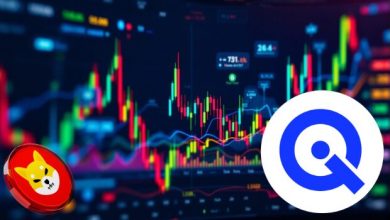Market Data Platforms: The Role of Real-Time Information in Trading

In today’s trading environment, access to real-time market data is not just an advantage; it’s a necessity. Market data platforms, which provide traders with up-to-the-second information about stock prices, commodities, forex rates, and other financial instruments, have revolutionized the way financial markets operate. For both seasoned professionals and beginners, understanding how real-time information impacts trading decisions is crucial. This article explores the role of market data platforms, the technology behind them, and why they are indispensable in modern trading.
What Are Market Data Platforms?
Market data platforms are digital systems that aggregate and deliver financial data to traders, brokers, and analysts. These platforms collect information from various exchanges and sources, such as stock markets, forex markets, and commodity exchanges. They process this data and present it in a user-friendly format, enabling traders to make informed decisions quickly.
Popular examples of market data platforms include Bloomberg Terminal, Refinitiv (formerly Thomson Reuters), and MetaTrader. These platforms offer tools like live price updates, historical data analysis, charts, and news feeds all designed to enhance the trading experience.
The Importance of Real-Time Information
Real-time data is the lifeblood of trading. Imagine trying to buy or sell stocks without knowing their current prices. Delayed or outdated information can lead to poor decisions, missed opportunities, and significant financial losses. Here’s how real-time data plays a vital role:
Accurate Decision-Making: Traders rely on real-time information to execute trades at optimal prices. A delay of even a few seconds can result in buying or selling at an unfavorable price.
Market Awareness: Real-time data provides insights into market trends, volume changes, and sudden price movements. This awareness helps traders anticipate market shifts and adjust their strategies accordingly.
Risk Management: Market data platforms enable traders to monitor multiple assets simultaneously. This oversight is critical for mitigating risks in volatile markets.
Opportunities for Automation: Automated trading systems, or algorithms, depend on real-time data to execute trades instantly based on pre-set criteria. Without accurate, live information, these systems wouldn’t function effectively.
How Market Data Platforms Work
Market data platforms rely on advanced technologies to provide real-time information. Here’s a simplified breakdown of how they work:
Data Collection
The platform collects raw data from multiple sources, including stock exchanges, news outlets, and financial institutions. This data includes prices, trading volumes, order book details, and more.
Data Processing
Once collected, the raw data is processed using high-speed algorithms. These algorithms filter and organize the information to make it meaningful and actionable for users.
Data Delivery
Processed data is delivered to traders via APIs, dashboards, and charts. Many platforms use cloud technology to ensure seamless and fast delivery across devices.
Analytical Tools
Market data platforms often include analytical tools like trend indicators, moving averages, and candlestick charts. These tools help traders interpret the data and refine their strategies.
Benefits of Using Market Data Platforms
Using market data platforms offers several advantages:
Speed and Efficiency
With real-time updates, traders can react instantly to market changes. This speed is essential in a world where prices can fluctuate within milliseconds.
Comprehensive Analysis
Platforms offer integrated tools that allow users to analyze data from different angles. Historical data, predictive models, and comparative analysis empower traders to make well-rounded decisions.
Accessibility
Market data platforms make it easy for traders, regardless of location, to access the same high-quality data. All you need is an internet connection and a subscription.
Leveling the Playing Field
In the past, access to real-time data was limited to large financial institutions. Today, platforms have democratized this access, enabling retail traders and small firms to compete with industry giants.
Challenges in Real-Time Market Data
While market data platforms are invaluable, they come with their own set of challenges:
- High Costs: Many platforms require costly subscriptions, making them inaccessible for some traders.
- Data Overload: With so much information available, it can be overwhelming to sift through and focus on what matters most.
- Technical Issues: Downtime or lag in data delivery can disrupt trading activities and lead to financial losses.
- Security Concerns: Platforms that handle sensitive financial data must have robust cybersecurity measures to prevent breaches.
Emerging Trends in Market Data Platforms
The world of market data platforms is continually evolving. Here are some trends shaping the future:
Artificial Intelligence (AI) and Machine Learning (ML)
AI and ML are being integrated into market data platforms to provide predictive analytics, sentiment analysis, and smarter trading insights. These technologies can identify patterns and trends that may not be apparent to human analysts.
Blockchain Technology
Blockchain is enhancing transparency and security in data delivery. Some platforms are exploring blockchain-based solutions to improve data integrity and reduce costs.
Mobile Trading
As mobile devices become more powerful, traders are increasingly accessing market data platforms on their smartphones. This trend has prompted platforms to optimize their interfaces for mobile use.
Customization and Personalization
Modern platforms are focusing on offering personalized experiences by tailoring data and analytics tools to individual user preferences.
Conclusion
Market data platforms play a pivotal role in modern trading by delivering real-time information that empowers traders to make informed decisions. Whether you’re a seasoned professional or a beginner, understanding how these platforms work and leveraging their features can enhance your trading outcomes. As technology continues to advance, the future of market data platforms promises even more innovation, accessibility, and efficiency.
By staying informed and adapting to these changes, traders can harness the full potential of real-time information and succeed in the dynamic world of trading.





